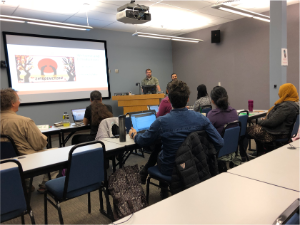Idaho State to receive $3,000,000 to boost Idaho’s health care workforce
Idaho State University is set to receive nearly $3,000,000 over several years to establish a Community Health Worker Collaborative program for the state, designed to grow the community and public health workforce.
ISU is one of four grantees in the northwest and the only awardee in Idaho. The U.S. Department of Health and Human Services (HHS) awarded 83 grantees across the nation a total of $225.5 million through the Health Resources and Services Administration (HRSA) to fund the Community Health Worker (CHW) Training Program.
The CHW Training Program is a new multi-year program that sponsors training and apprenticeships to support an estimated 13,000 community health workers nationwide, including 400 community health workers in Idaho through ISU’s CHW Training Academy. Community health workers connect people to care, build trust within communities and facilitate communication between patients and health care providers. They can also be known as promotores de salud, community health advisors, outreach workers, patient navigators and peer counselors.

“Community health programs are vital to the state’s public health outreach and improving the quality of care in many of Idaho’s underserved communities,” says U.S. Senator Mike Crapo. Idaho State University is a leader in providing unique education and training to expand community health work in Idaho.
Ryan Lindsay, chair and associate professor for the Department of Community and Public Health, a department within the College of Health at ISU says, in Idaho, communities depend on community health workers for health information and linking individuals to community resources.
Lindsay works closely with a team to execute the Idaho CHW Training Program, and is partnered with Michael Mikitish, chair and assistant professor in the Emergency Service Department at the ISU Meridian Institute of Emergency Management to oversee the project. Lindsay and Mikitish promote that community health workers play an important role as a bridge between traditionally underserved populations and needed health information; support and care; as well as basic and social services.
“Community health workers often assist in disease prevention as well as in addressing the following: chronic disease management, maternal and child health, HIV/AIDS, diabetes, substance abuse, asthma and navigating our health system when they may have limited resources,” Mikitish explains.
This investment from HRSA will help Idaho State fund education programs that will ensure community and public health workers have the skill sets needed to provide effective community outreach, increase access to care, and assist with critical prevention and treatment services.
For more information, visit isu.edu/publichealth/programs/community-health-worker.
